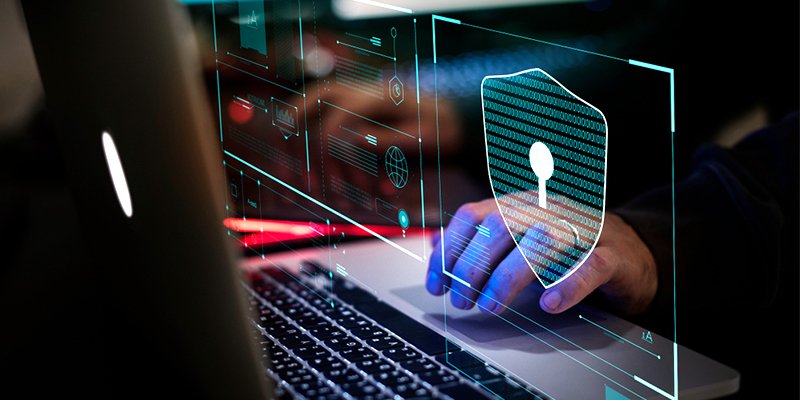
Data security is an essential requirement for every business and individual. With the development and rise of technology in every sector, cyber-attacks are also expanding drastically. Using the internet via smartphones, computers, laptops, and tablets for remote accessibility over the cloud platform to the offices is becoming a new norm of the work culture. With extensive internet usage, data breaches are becoming frequent via malicious links, Trojans, and viruses.
There are a lot of data security measures available against cyber-attacks. It needed to consult with a cybersecurity expert as it will become the first step towards data security of your confidential business and individual data. The primary motive of cyber attackers is financial, but now it includes identity theft, social network fraud, password trafficking, cyber extortion, unauthorized system accessing, etc. The most common examples of cyber threats are Malware, phishing, man-in-the-middle attack, denial-of-service attack, SQL injection, DNS tunneling, web application attacks, supply chain attacks, and many more.
Cyber Attack
A cyberattack is a well-calculated profiteering of your computer system or network. A cyber attack happens when the hackers attempt to get unauthorized access to your digital data or files available on a computer or a network, or cloud technology. Any cyber-attack intention is to damage or wreck the reputation of a business or individual by stealing confidential or private data. They attack individuals, businesses, groups, organizations, or governments.
A data breach is usually a security threat, and it happens when unauthorized access gains your confidential data. The classified data might consist of your social security number, passwords, or financial bank account numbers. Stealing this information often includes monetary attacks, or the data gets sold to the dark web for cybercrimes like identity theft.
Cyber attackers are those who work individually, or they have cybercriminal groups or government-sponsored groups.
How does a cyberattack happen?
Most cyberattacks are strategic, where attackers search out loopholes in a system or network security standards and manipulate them. It includes exploring loopholes in the coding of your website to introduce their malicious codes and capture the security or authentication procedure.
A cyber attack is likely to happen usually via earthly mistakes such as entering an ordinary password or forgetting to change the default password on a device like a router.
Phishing is a commonly known cyberattack where it includes sending emails that look official but are sent from cyber criminals mainly to gain your personal information.
Another way of cyberattack is distributed denial of service happens when hackers hack access to a website or server. They use multiple systems and overburden the targetted system by unavailing the usage to appropriate users.
Malicious software attacks involve attacks of Trojans, worms, and viruses. It infects the computer system or network. They get attached to the system files and self-replicate themselves.
Tips to Prevent CyberAttacks
The internet is becoming a space corrupted with malicious links, Trojans, and multiple viruses. Data breach is becoming commonplace, and unauthorized users make more potential threats over the internet. One single click can damage an enormous amount of money, and it is essential to do some prevention and be safe online. Below listed are the ten tips to prevent cyberattacks:
- Educate your staff –
The trivial way to get your data accessibility is via your employees. The hackers send fraudulent emails to your employees, imitate someone from your office, and can ask for personal information to access specific documents. Links might look legal and valid for an inexperienced employee and can get trapped.
Due to this reason, it is advisable to train and educate your employees regarding cyber-attack protection and educate them on the latest cyber attacks.
It is necessary to:
- Examine the links before clicking on them,
- Investigate the email address before opening the mail,
- Be cautious while sending sensitive and private information. It’s advisable to call the person before any action on the request.
Your employees must get trained against suspicious emails asking for confidential details. If you receive an email from an employee requesting sensitive information, you can call the relevant person and verify the email’s authenticity.
- Backing up of your data –
It is advisable to back up your business or individual data to maintain business continuity and data availability in any data security breach. Data backup is the logical and endorsed system. Sometimes, data loss might happen due to hardware issues and other system failures. It is necessary to classify the crucial sensitive data of your business and opt for automatic data backups on a secure cloud based QuickBooks platform or safe server. A lot of safe and secure services are available in the market to save and retrieve data backup.
- Using security measures –
It is essential to install security standards and activation of firewalls. Firewalls provide the front and foremost defense line of cybersecurity.it blocks unknown connections or bogus sites to prevent cyber attack or viruses. You can use anti-virus or anti-malware software to avoid viruses infecting your system by installing and continuously updating your anti-virus software.
- Apply two-factor authentication –
It is vital to use a strong password, but it’s necessary to have two-factor authentication. It empowers system security with two layers of data security. If the hacker gets the correct password for your account, then you will have another security measure to ensure data safety.
- Secured mobile and other devices –
Smartphones or other digital devices are also vulnerable to viruses and hackers. It is essential to download applications from authorized and trustworthy links. It is necessary to install the latest operating system updates. Also, you can turn on the automatic updates in the settings to stay updated over the old software.
- Automated Software update –
Usually, cyberattacks happen if your software or operating system is not completely updated. The attackers identify this flaw and gain access to your network. It’s always advisable to invest in automatic software and operating system update. It will help in managing all the software and system updates keeping your system rebounding and updated.
- Keep strong passwords and use password management tools –
It is a well-known fact that setting up a strong password is a critical aspect of data security. It is better to set up a user-friendly password, and it should have eight characters and comprises a maximum length of 64 characters. It’s better to select a password that is easy to remember. You can reset the password but it is advisable to set recurring changes to your password.
- Secure personal sensitive data with Personal Identifiable Information –
Personally, identifiable information refers to information accessible by a hacker to recognize the location of the user. It has details like address, contact number, date of birth, social security number, IP address, or any other physical identity details. In the modern world, it is better to be cautious about the details you include online. It’s necessary to be more careful while providing your identity details which can increase the vulnerability of security breaches.
- Control accessibility of your systems –
It is necessary to have control over the accessibility of your systems. Otherwise, anyone can come and access your confidential data or infect it with the virus. It’s advisable to control and monitor the accessibility of your computers or network to avoid any illegal practice of security breaches.
- Management of employee accounts –
Employees of your company need separate login credentials to access every application or program. It will help in minimizing cyberattacks. One single sign-on ensures security and better usability.
All in all, we can say that an individual or organization can invest all the efforts to safeguard confidential and sensitive data. Helpful cybersecurity tips can help in avoiding cyber attacks. None of us is immune from cyber attacks, but we can use and apply these tips to minimize the risk and possibility of security threats.
You should read also about Complete Guide to Email Authentication: SPF, DKIM, DMARC, and Best Practices



Leave a Reply